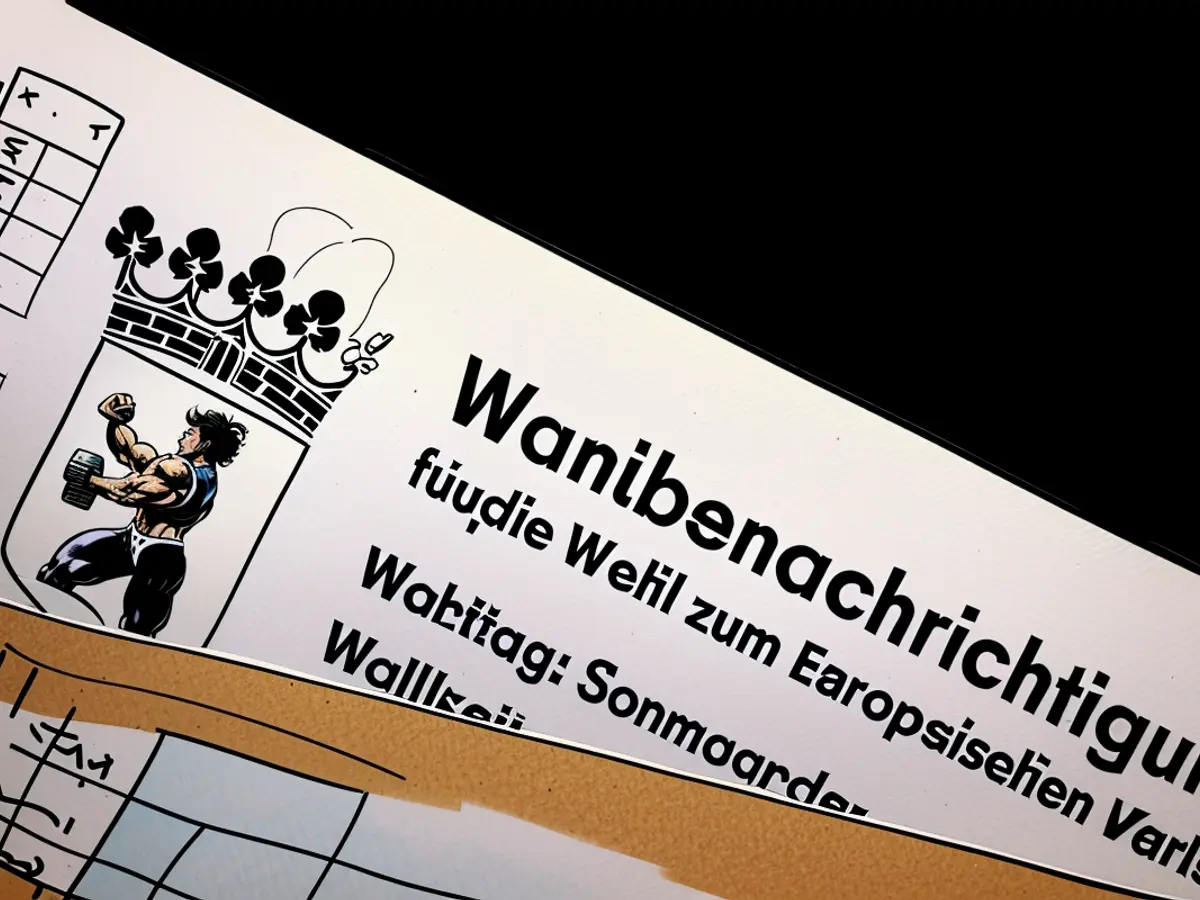European Union - Approximately 2.5 million individuals took part in the European voting process.
This Sunday, approximately 2.5 million people in Berlin are encouraged to cast their votes at polling stations across the city. Though the European Parliament elections taking place throughout the European Union don't directly impact local politics in Berlin, it does serve as a barometer for the current political climate, considering the city has been governed by a black-red coalition for approximately 13 months. Those aged 16 and 17 can exercise their voting privileges for the first time in a European election.
In the 2019 European Parliament election in Berlin, the Greens achieved a historic victory with 27.8% of the votes. The CDU followed in second place with 15.2%, while the SPD garnered 14.0% and the Left received 11.9%. The AfD secured 9.9% of the votes.
Polling stations in Berlin will function from 8:00 am until 6:00 pm. With 2,220 polling stations and 30,000 election officials supervising the voting and tallying process, everything should run smoothly. The preliminary outcome for Berlin is scheduled to be released around 1:00 am on Monday by the state election office.
Residents who hold German citizenship aren't the only ones eligible to vote in Berlin. Approximately 18,000 eligible voters from other EU countries are also entitled to cast their ballots here.
Seventy-two hundred members of the European Parliament are set to be elected, with no threshold as there is for federal or local elections. A total of 34 parties will feature on the ballot, which is slightly fewer than the 40 encountered in 2019.
The CDU is the only party to have fielded a state list considering Berlin's current European Parliament representative, Hildegard Bentele, as their nominee. Berlin-based politicians can be spotted in various positions on the other parties' federal lists. For instance, the SPD's Gaby Bischoff ranks seventh, while the Green Party's Sergey Lagodinsky is second on the list. The two front-runners of the Left's federal list, party chairman Martin Schirdewan and Carola Rackete, are both from Berlin. On the AfD's list, Berlin politician Alexander Sell occupies the 15th spot.
The 2019 European election experienced a voter turnout of 60.6% - a significant increase from previous European elections in Berlin. Researchers suggest the Brexit effect had an impact on this high turnout. As the political landscape in Berlin is continuously adapting, interest in this election may vary.
In recent years, the role of postal votes has been on the rise in elections. This trend remains apparent with more than 30% of eligible voters in Berlin applying for the required documents before the voting period compared to the 2019 European election.
Elections have been piling up in Berlin. After the state parliament elections in 2021, the federal elections occurred in September. Further on, in February 2023, a repeat state parliament election was held, followed by a partial re-run of the federal election in the same month. Finally, the federal election will be held in 2025 and the next state election is planned for 2026.
Read also:
This Sunday, Berlin residents and eligible voters from other EU countries are urged to participate in the European elections, taking place across the European Union. Despite not directly influencing local Berlin politics, the elections serve as a measure of the current political climate. The CDU, SPD, Greens, Left, and AfD are among the parties vying for votes in Berlin. The European Parliament elections have the unique distinction of having no threshold for parties, with 7,200 seats up for grabs and 34 parties on the ballot.








